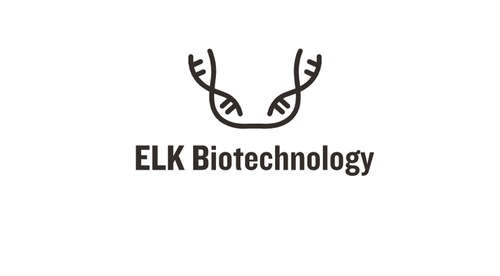Product Description
Human Stem Cell Factor Receptor (SCFR) ELISA Kit | AE20603HU | Abebio
Species Reactivity: Human (Homo sapiens)
Abbreviation: SCFR
Alternative Name: N/A
Application: ELISA
Range: 1.56-100 ng/mL
Sensitivity: 0.61 ng/mL
Intra-Assay: ≤5.4%
Inter-Assay: ≤8.7%
Recovery: 1, 03
Sample Type: Serum, Plasma, Other biological fluids
Detection Method: Sandwich
Analysis Method : Quantitive
Test Principale: This assay employs a two-site sandwich ELISA to quantitate SCFR in samples. An antibody specific for SCFR has been pre-coated onto a microplate. Standards and samples are pipetted into the wells and anySCFR present is bound by the immobilized antibody. After removing any unbound substances, a biotin-conjugated antibody specific for SCFR is added to the wells. After washing, Streptavidin conjugated Horseradish Peroxidase (HRP) is added to the wells. Following a wash to remove any unbound avidin-enzyme reagent, a substrate solution is added to the wells and color develops in proportion to the amount of SCFR bound in the initial step. The color development is stopped and the intensity of the color is measured.
Product Overview: Stem cell factor Receptor (SCFR;CD117), also called KIT or C-kit receptor, is a cytokine receptor expressed on the surface of hematopoietic stem cells as well as other cell types. This receptor binds to stem cell factor (a substance that causes certain types of cells to grow) . Altered forms of this receptor may be associated with some types of cancer.C-kit was first identified as the cellular homolog of the feline sarcoma viral oncogene v-kit. This protein is a type 3 transmembrane receptor for MGF (mast cell growth factor, also known as stem cell factor) . Mutations in its encoded gene are associated with gastrointestinal stromal tumors, mast cell disease, acute myelogenous leukemia, and piebaldism. Multiple transcript variants encoding different isoforms have been found for this gene.
Stability: The stability of ELISA kit is determined by the loss rate of activity. The loss rate of this kit is less than 5% within the expiration date under appropriate storage condition. The loss rate was determined by accelerated thermal degradation test. Keep the kit at 37°C for 4 and 7 days, and compare O.D.values of the kit kept at 37°C with that of at recommended temperature. (referring from China Biological Products Standard, which was calculated by the Arrhenius equation. For ELISA kit, 4 days storage at 37°C can be considered as 6 months at 2 - 8°C, which means 7 days at 37°C equaling 12 months at 2 - 8°C) .
 Euro
Euro
 USD
USD
 British Pound
British Pound
 NULL
NULL








